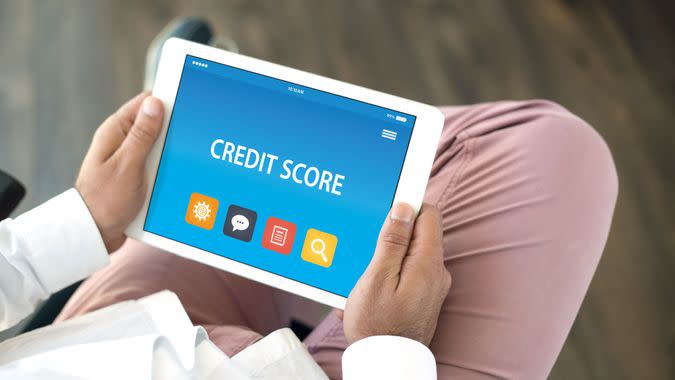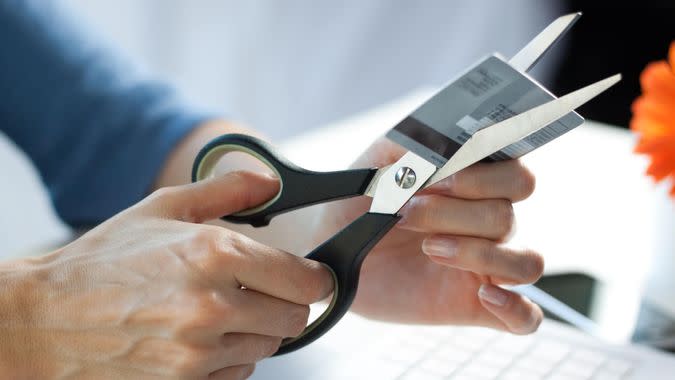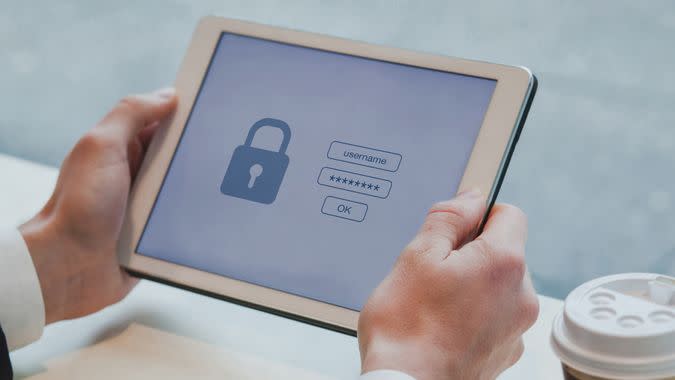10 Things to Do Now If You Have a 500 Credit Score

A poor credit score can be damaging -- and demoralizing -- particularly when you apply for a mortgage or new car loan. FICO credit scores range from 300 to 850 -- and the higher the score, the less risk is associated with lending money or credit to you.
Read: 10 Credit Score Myths You Need To Stop Believing
Learn: 19 Ways To Tackle Your Budget and Manage Your Debt
Events such as missed payments, foreclosure and bankruptcy all lead to a poor credit score. A FICO score or other credit score of 500 or below is considered very poor. The good news is, no matter the reason for your low number, there are things you can do now to raise your credit score.
Last updated: June 22, 2021

10 Things to Do to Raise Your 500 Credit Score
Negative assessments on your credit report can last up to a decade based on the severity, making it essential to take steps toward raising your credit score immediately. Click through for 10 simple ways to improve your credit score.
Credit Score: 30 Things You Do That Can Mess Up Your Credit Score

1. Make Payments on Time
Your payment history is the first indicator lenders review before approving credit. Setting up automatic payments can help eliminate the need to remember what bills to pay when, making it harder to miss a payment.
Read More: 19 Effective Ways To Tackle Your Budget

2. Keep Your Credit Utilization Ratio Low
When rebuilding credit, a key number is your credit utilization ratio, which encompasses your total credit card balances divided by your total credit limit. Having a utilization ratio below 30 percent makes you more attractive to lenders, indicating you do not max out credit cards.
Ways to decrease your utilization ratio include paying off existing debt and keeping a low credit card balance, as well as piggybacking on the credit account of a responsible user.
Money: 50 Terrible Ways To Try and Save Money

3. Pay Down Existing Debt
This might seem obvious, but reducing your current debt load can boost a 500 credit score. Focus on being aggressive with payments on credit cards with the highest interest rates first.
Check the interest rate of each card on your credit report. Once those cards are paid off, the unused credit lowers your utilization ratio.
Budgeting: The 50/30/20 Rule: Is It the Best Budgeting Method?

4. Avoid Using Your Cards With a 0 Balance
Another component of credit score relates to the number of open accounts and their balances. If possible, stop using your cards for purchases, especially those with zero balances.
Generally, accounts with zero balances tend to improve your credit score rating. But restraining from using your credit cards will also help you pay down your debt more quickly.
Read More: What Is The Highest Credit Score?

5. Create a Budget
Although budgeting is not the most attractive step for credit score improvement, it's an effective piece of the credit rebuilding puzzle. Budgeting will make apparent what you can and cannot afford, preventing -- or at least signaling -- potential financial overreach. You can use helpful budgeting apps such as Wally, Mint and Goodbudget to make it easier.
Discover: 40 Money Habits That Can Leave You Broke

6. Don’t Open Unnecessary Credit Cards
Every time you apply for a new line of credit, the application appears on your credit report. Using the credit you've already obtained displays your commitment to responsibly managing credit, which can raise your credit score. Plus, having too many credit cards can lead to overexerting funds.
See: 25 Ways To Save Yourself From Your Debt Disaster

7. Diversify Your Debt
Credit scoring models take into account all types of credit cards and loans. If your debt comes from the same credit source -- for example, if all your credit is with major department stores -- it can reflect poorly on your credit card score.
Aim for a good mix of credit -- that could include credit cards, retail accounts, installment loans, finance company accounts and mortgage loans.
Learn More: What Is a Good Credit Score?

8. Safeguard Against Identity Theft
Fraud can cause irreparable harm to your credit score if not dealt with immediately. Typically, the identify thief maxes out credit cards in your name -- and those charges never get paid. An array of identity protection agencies can monitor your spending activity and alert you of risks. Keeping a frequent eye on your credit report can be helpful, too, as new accounts opened in your name will appear on it.
Get It Right: 101 Easy Ways To Save Money Daily

9. Get a Secured Credit Card
One way to reshape your credit history is by using a secured credit card. Secured credit cards require a deposit as security, reducing the risk of missed payments because the deposit should, in most cases, cover them. The deposit also acts as the credit limit.
Secured credit cards allow you to have the flexibility of an unsecured card with the reassurance of a protective deposit. In time with good behavior, it's possible to graduate to an unsecured card because you've regained trust with lenders.
Learn More: Reasons You’re Still Living Paycheck to Paycheck

10. Dispute Any Mistakes on Your Credit Report
It is possible to find mistakes on your credit report, and if you do, report them right away. Under the federal Fair Credit Reporting Act, you have the right to dispute any information you believe is false.
"Inaccurate, incomplete or unverifiable information must be removed or corrected, usually within 30 days," according to the FCRA. Be aware, you must make your argument through writing a formal letter.
More From GOBankingRates
This article originally appeared on GOBankingRates.com: 10 Things to Do Now If You Have a 500 Credit Score
